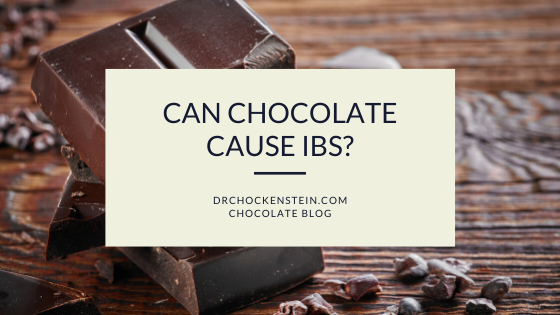
Can Chocolate Cause IBS?
Share
Can Chocolate Cause IBS?
IBS, or Irritable Bowel Syndrome, is a common disorder that affects millions of people around the world. IBS attacks can be extremely painful and highly inconvenient, making it difficult for some people to leave the house. It is a very personal disorder, as people are affected differently and experience a variety of symptoms. One common way to keep IBS attacks at bay is to watch what you eat and know what trigger foods might lead to an attack.
Many people have woefully given up chocolate as they believe that it can cause IBS. While that may be true in some cases, however, you don’t have to give up the tasty treat completely. Most chocolate bars that might trigger an attack usually do so because of their dairy content, so your best bet is to study up on the bars that you can eat even with IBS.
Milk chocolate often has a high amount of sugar. This combined with the dairy content could spell disaster for an IBS sufferer. If milk chocolate is the only option for dessert, you will be better off passing. Some people are also sensitive to the caffeine found in chocolate, but the amounts are often so small that they won’t affect you.
There are actually some studies that suggest that chocolate could be good for IBS, depending on the type and amount that you consume. Cocoa can act a prebiotic, promoting the growth and balance of healthy gut bacteria. The purer the chocolate (having a higher percentage of cocoa), the more likely you are to see digestive benefits from it.
If you suffer from IBS and want to continue to enjoy chocolate, you should always go for darker chocolate rather than milk or white chocolate. The latter types contain lactose which can wreak havoc on your digestive system during a flare up. Instead of going for cheap milk chocolate bars, try to find a dark chocolate bar, and limit yourself to 3 ounces or fewer.
Because of the increased popularity of veganism, there are many lactose-free chocolate bars on the market now, using alternative milks such as soy or rice. If you want to enjoy the taste of milk chocolate but don’t want to suffer the digestive consequences, you can try some of these alternative bars. However, make sure that the replacement substance is not something that bothers your system. Some people are just as sensitive to soy or gluten as they would be to regular milk. It all comes down to personal preference.
Although you may have to curb some of your habits to help treat your IBS, the good news is that you can still enjoy chocolate in moderation if you do your research. Stay away from milk chocolate and white chocolate and focus on finding high-quality dark chocolate. Not only is it still very tasty, it also has a myriad of health benefits, one of which is the ability to improve your digestion!
Now that we've explored how to enjoy chocolate without having to worry about your digestive health you might be interested in Can Chocolate Give You Headaches?
